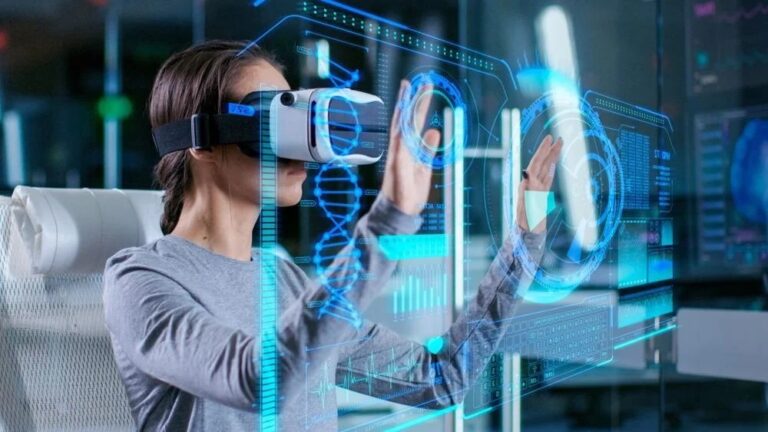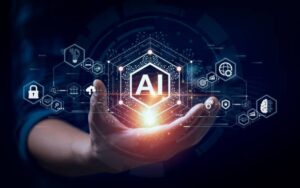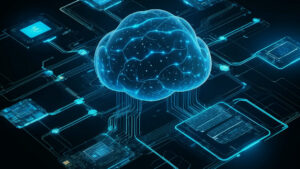The potential of deep learning knows no bounds, and as we continue to explore its capabilities, new applications and benefits emerge across different fields. Here, we delve into even more areas where deep learning is making a significant impact.
Deep Learning in Healthcare Research
- Drug Discovery:
- Molecular Modeling: Deep learning models analyze molecular structures and predict interactions between compounds, accelerating the discovery of new drugs and treatments.
- Clinical Trials: AI optimizes clinical trial design and patient selection by analyzing historical data, patient demographics, and genetic information, increasing the efficiency and success rates of trials.
- Genomics:
- Gene Sequencing: Deep learning algorithms analyze genomic data to identify genetic variations, mutations, and their associations with diseases, advancing personalized medicine and treatments.
- Functional Genomics: AI interprets the functional roles of genes and their regulatory elements by analyzing large-scale genomic and transcriptomic data, providing insights into disease mechanisms and potential therapeutic targets.
Deep Learning in Energy Sector
- Renewable Energy Optimization:
- Solar Power Forecasting: Deep learning models predict solar energy production by analyzing weather data, panel performance, and environmental factors, optimizing energy management and grid integration.
- Wind Energy Analysis: AI forecasts wind patterns and turbine performance, enhancing the efficiency of wind farms and reducing operational costs.
- Energy Conservation:
- Smart Grid Management: Deep learning optimizes the management of smart grids by analyzing energy consumption patterns, demand forecasts, and grid stability, ensuring efficient and reliable energy distribution.
- Building Energy Efficiency: AI monitors and controls building energy systems by analyzing usage data, weather conditions, and occupancy, reducing energy consumption and costs.
Deep Learning in Urban Planning
- Traffic Management:
- Traffic Flow Optimization: Deep learning models analyze traffic data to optimize signal timings, reduce congestion, and improve traffic flow in urban areas.
- Predictive Maintenance: AI predicts maintenance needs for roads, bridges, and infrastructure by analyzing usage patterns, weather conditions, and structural data, ensuring timely repairs and reducing disruptions.
- Sustainable Development:
- Urban Growth Modeling: Deep learning models predict urban growth and land use changes by analyzing demographic data, economic indicators, and environmental factors, aiding in sustainable urban planning and development.
- Resource Allocation: AI optimizes the allocation of resources such as water, energy, and public services by analyzing demand patterns, population growth, and infrastructure capacity, improving urban living standards.
Deep Learning in Agriculture
- Precision Farming:
- Crop Monitoring: Deep learning models analyze satellite and drone imagery to monitor crop health, detect diseases, and assess soil conditions, enabling precise interventions and improving yields.
- Irrigation Management: AI optimizes irrigation systems by analyzing weather data, soil moisture levels, and crop requirements, reducing water usage and enhancing crop productivity.
- Supply Chain Optimization:
- Harvest Forecasting: Deep learning predicts harvest yields by analyzing crop data, weather conditions, and historical trends, optimizing supply chain management and reducing waste.
- Quality Control: AI ensures the quality and safety of agricultural products by analyzing sensor data, detecting contaminants, and monitoring storage conditions, enhancing food safety and consumer trust.
Deep Learning in Legal Sector
- Legal Research:
- Case Law Analysis: Deep learning models analyze legal documents, case law, and statutes to provide insights and recommendations, streamlining legal research and improving case preparation.
- Contract Review: AI automates contract review by analyzing legal terms, identifying risks, and suggesting revisions, increasing efficiency and reducing errors in contract management.
- Litigation Support:
- Evidence Analysis: Deep learning models analyze evidence such as text, images, and audio recordings to identify relevant information, supporting legal arguments and improving case outcomes.
- Predictive Analytics: AI predicts case outcomes by analyzing historical data, judicial behaviors, and legal trends, aiding in strategy development and decision-making.
Deep Learning in Customer Service
- Chatbots and Virtual Assistants:
- Natural Language Processing: Deep learning enhances chatbots and virtual assistants by enabling them to understand and respond to customer queries in natural language, providing timely and accurate support.
- Sentiment Analysis: AI analyzes customer interactions to gauge sentiment, identify issues, and provide personalized responses, improving customer satisfaction and loyalty.
- Automated Support Systems:
- Ticket Classification: Deep learning models classify and prioritize support tickets by analyzing their content and urgency, ensuring timely resolution of customer issues.
- Self-Service Solutions: AI powers self-service solutions by providing customers with relevant information, troubleshooting guides, and step-by-step instructions, reducing the need for human intervention.
Deep Learning in Fashion and Retail
- Fashion Design:
- Trend Analysis: Deep learning models analyze fashion trends, social media data, and consumer preferences to predict upcoming styles and design popular collections.
- Virtual Try-On: AI-powered virtual try-on systems allow customers to visualize clothing and accessories on themselves using augmented reality, enhancing the online shopping experience.
- Supply Chain Management:
- Inventory Optimization: Deep learning optimizes inventory levels by analyzing sales data, demand forecasts, and seasonal trends, reducing overstock and stockouts.
- Logistics and Distribution: AI enhances logistics by optimizing routes, predicting delivery times, and managing warehouse operations, ensuring efficient and timely product distribution.
Deep Learning in Tourism and Hospitality
- Travel Planning:
- Personalized Recommendations: Deep learning models analyze traveler preferences, past behavior, and reviews to provide personalized travel recommendations, enhancing the planning experience.
- Dynamic Pricing: AI optimizes pricing strategies by analyzing demand patterns, market conditions, and competitor pricing, maximizing revenue and occupancy rates.
- Guest Experience:
- Customer Service Automation: AI automates customer service tasks such as booking, check-in, and concierge services, providing seamless and efficient experiences for guests.
- Feedback Analysis: Deep learning analyzes guest feedback and reviews to identify areas for improvement, enhance services, and increase customer satisfaction.
Conclusion
The journey of deep learning continues to uncover new possibilities and opportunities across various sectors. Its transformative potential is not just limited to improving efficiencies and automating processes but also extends to enhancing human experiences and solving complex global challenges. As we move forward, it is crucial to adopt a responsible approach to deep learning, ensuring ethical considerations, transparency, and inclusivity to maximize its benefits for all. The future of deep learning is bright, and its continued exploration promises to bring about a revolution in how we live, work, and interact with the world around us.





+ There are no comments
Add yours